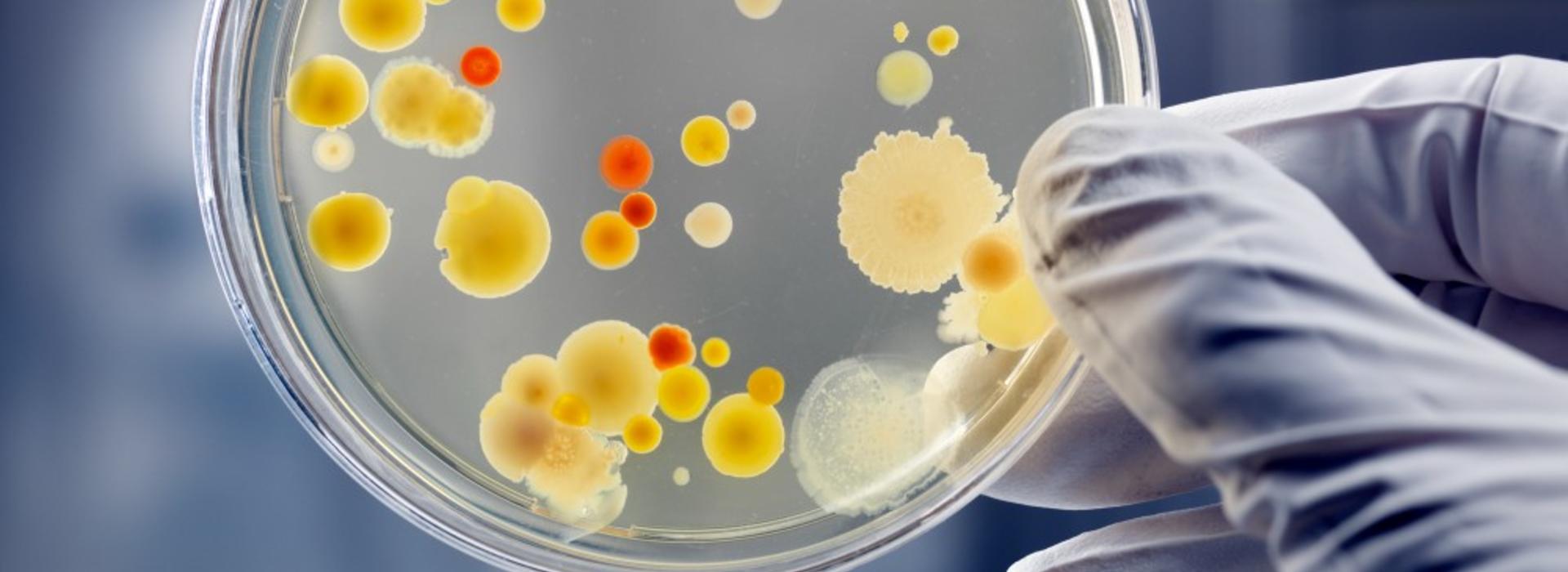
Research Brief: Cell-cell signaling of GI bacteria can unlock future infection preventions
MINNEAPOLIS/ST. PAUL (04/08/2022) — Published in Nature Communications, research from the University of Minnesota and Mayo Clinic sought to understand how microbial communities help people resist pathogens.
Researchers observed that strains of bacterium Enterococcus faecalis (E. faecalis), a common bacterring in the GI tract of humans, signal to each other during gene transfers to the intestinal tract of animal models. When E. faecalis becomes imbalanced in the body, it can cause infection in the GI tract.
“We found that pheromone induction within microcolonies in the GI tract suggests that adherent microcolonies on the surface of the intestine comprise an important niche for cell-cell signaling and plasmid transfer,” said Gary Dunny, a professor of microbiology and immunology at the U of M Medical School.
The study found that:
-
the pCF10 plasmid increases competitive fitness of bacteria unrelated to antibiotic resistance;
-
an intracellular signaling system regulating plasmid transfer functions in GI tract; and,
-
that small bacterial biofilms on the intestinal surface function as an important niche for signaling and plasmid transfer.
This research demonstrated a novel effect of a plasmid on the ability of its host bacterium to colonize and persist in the natural environment, as well as the importance of a communication between bacterial cells.
“When someone has a bacterial infection, antibiotics are the go to treatment. Interfering with bacterial signaling might be a useful approach to prevent or treat hospital infections without directly increasing antibiotic resistance,” said Dunny.
The researchers recommend further studying of the use of genetic approaches to further probe the mechanisms of in vivo signaling and plasmid transfer.
-30-
Contact
Kat Dodge
Medical School Media Relations Manager
kdodge@umn.edu
About the University of Minnesota Medical School
The University of Minnesota Medical School is at the forefront of learning and discovery, transforming medical care and educating the next generation of physicians. Our graduates and faculty produce high-impact biomedical research and advance the practice of medicine. We acknowledge that the U of M Medical School, both the Twin Cities campus and Duluth campus, is located on traditional, ancestral and contemporary lands of the Dakota and the Ojibwe, and scores of other Indigenous people, and we affirm our commitment to tribal communities and their sovereignty as we seek to improve and strengthen our relations with tribal nations. For more information about the U of M Medical School, please visit med.umn.edu.